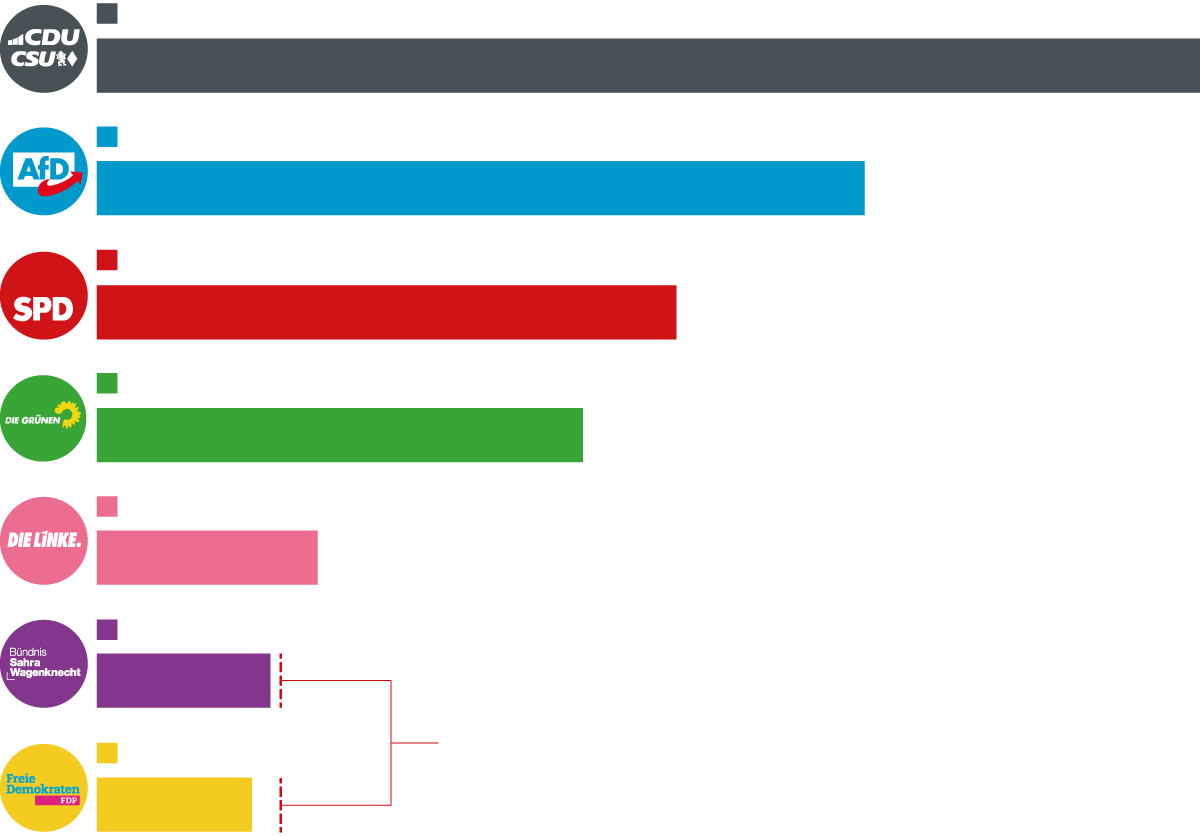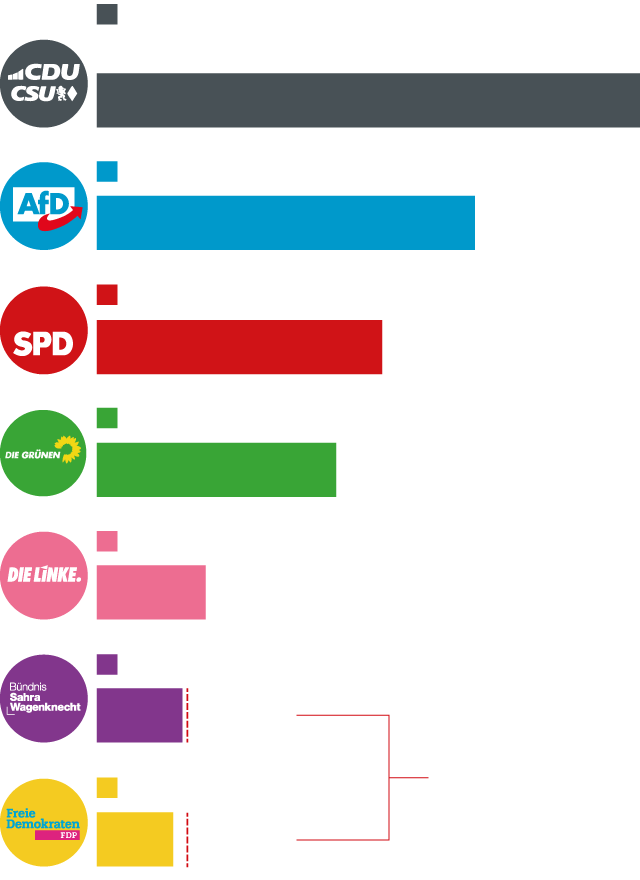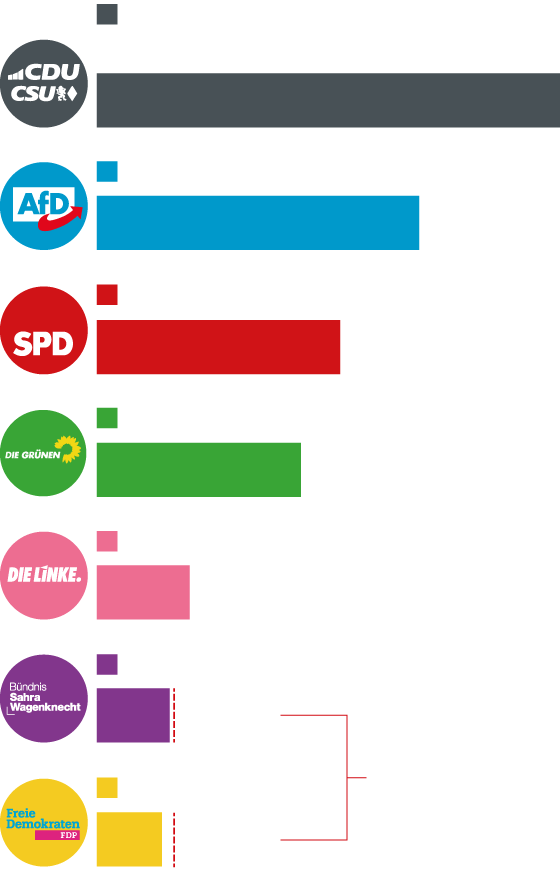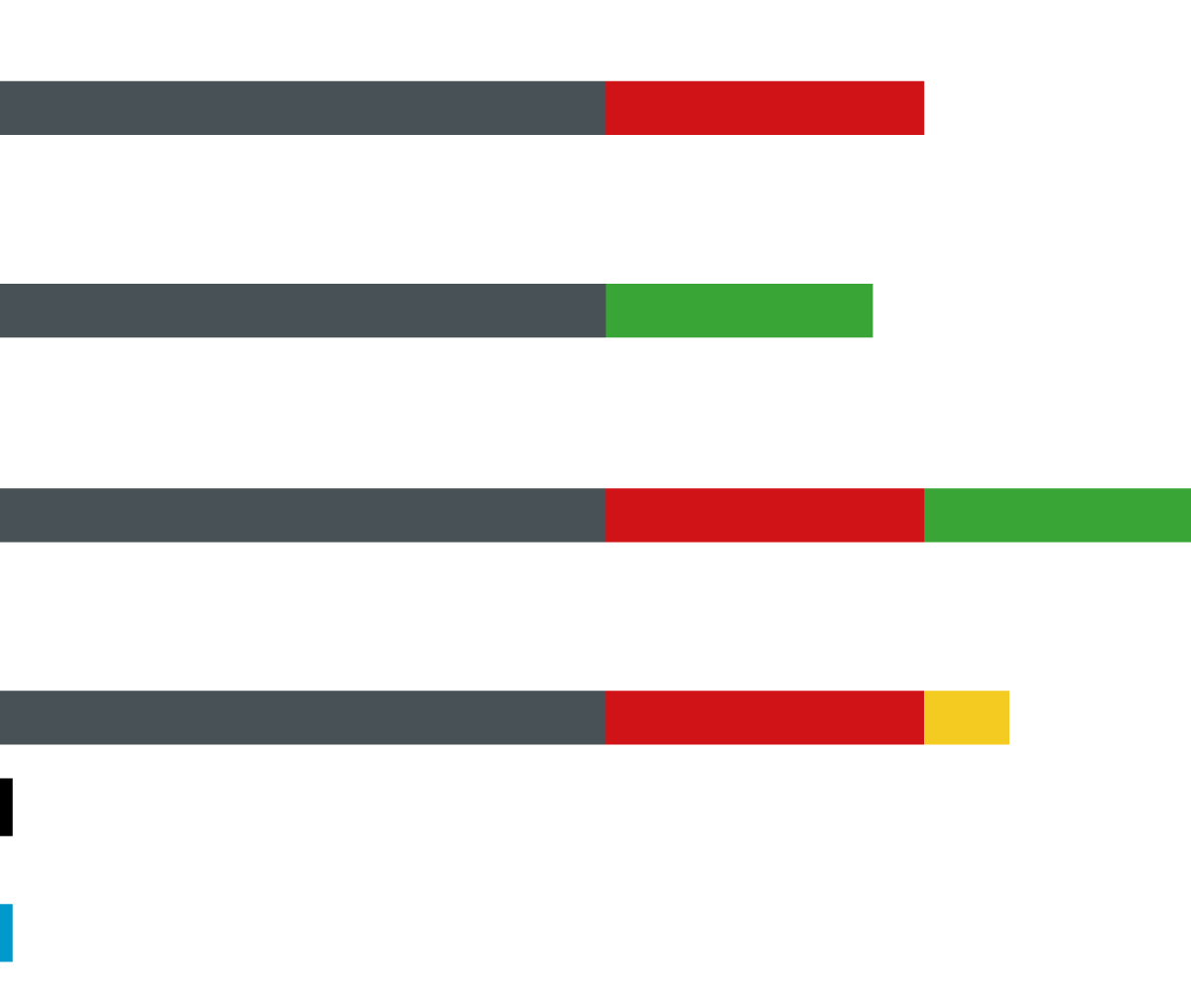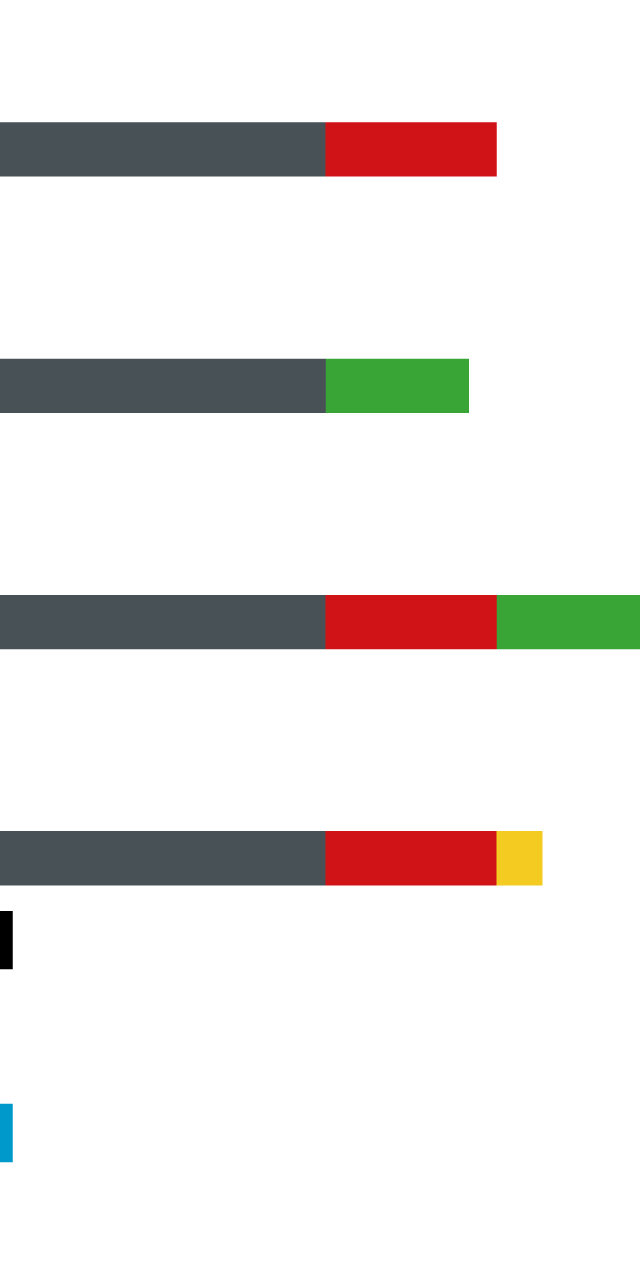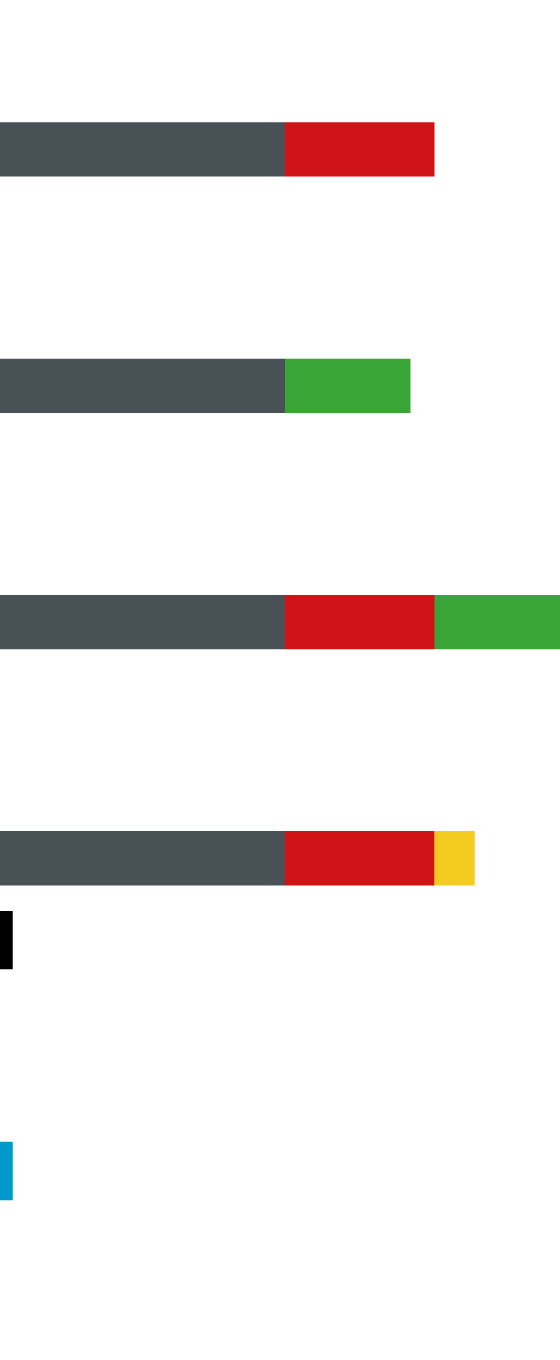Why is Germany no longer what it used to be?
The EU's powerhouse faces key elections against the backdrop of the Ukraine war, recession and political instability

BerlinUS Vice President JD Vance blew up relations between his country and Europe a week ago in Munich. "There is a new sheriff in the White House," he warned. In Germany, the election campaign continued and in a televised debate, conservative candidate Friedrich Merz reproached Olaf Scholz for not being the one to lead a European response. Once again, Macron reacted quickly, calling for a summit in Paris on Monday. The main European leaders showed unity in support of Ukraine around a round table. Scholz, seated to the right of the French president, once again played a secondary role, even though Germany is the European country that sends the most aid to Ukraine.
The last face-to-face between Scholz (SPD) and Merz (CDU) was filmed on Wednesday. Shortly after Trump's unprecedented comments on the Ukraine war in which he called Zelensky a dictator. They made no reference to it. The leaders of the two traditional German parties seemed to have agreed not to allow interference so few days before the elections. After the debate, analysts valued this deliberate omission positively: "Four days before the elections, only dictatorships can provide strong leadership." Although Trump's decisions could lead to a breakup of the transatlantic alliance and many would like a strong response from Germany, there is consensus in Berlin not to make a move until there is a clear mandate at the polls.
In the final stretch of the campaign, the candidates have focused on domestic politics. "In this country there are serious problems to solve, people feel it in their bones," said another analyst on television. The focus has been on the two major problems that, according to all the polls, concern Germans: the economy and migration. "Regardless of who forms part of the new federal government, we must solve the country's two major problems in the next four years," said Merz. "If the parties of the political centre do not do so, populism will triumph in the 2029 elections."
The magazine The Economist He believes that the lack of debate on Germany's international role is creating "a security risk" because "voters are not being prepared for the difficult decisions that will have to be made in the coming months." In Europe, criticism has long been mounting over Germany's lack of a strong voice. Immersed in internal political battles, the current chancellor has failed to lead the way. European response to global challenges, beyond the war in Ukraine.
Jacob Ross, a researcher at the German Council on Foreign Relations, tells ARA that when Scholz entered the government at the end of 2021, he intended to exercise the strongest leadership, "but he has never fully demonstrated this and has always opted for prudence and not to deviate from prudence."
Ross believes that Merz, the favourite in the polls and the best placed to become chancellor, could turn the tables and dare to play a more prominent role on the international stage. "A few months ago he said that he would like to start a 'strategic dialogue' with Moscow, without depending on the White House and the red lines drawn by the Russians, and that it was necessary to coordinate Germany's response, also on the delivery of weapons (including the Taurus long-range missiles) with the other European allies, above all France, the United Kingdom."
Pacifism in time of war
When analysing Germany's behaviour at the international level, we cannot forget the weight of the crimes of Nazism and the Holocaust. Support for Israel is unprecedented in Europe, even among left-wing parties. Some of its current allies, such as Poland, which suffered particularly badly under Hitler, Now they are calling for a more aggressive Germany and the strengthening of the German army is causing confusion. "Pacifism is deeply embedded in society," Ross notes, "and that includes an unwillingness to see German soldiers in combat missions and makes the German public very vulnerable to propaganda that plays on fears of war, destruction and death." According to the expert, the weight of history also means that there is little geopolitical vision among the political class and in universities.
During the campaign, most parties have been careful not to be seen as warmongering, and a new aid package for Ukraine has not been approved despite the insistence of the liberals. The candidates who have spoken most about the negative consequences that the conflict has for Germans are from two parties accused of being close to Putin: Alice Weidel, from the far-right Alternative for Germany (AfD) and Sahra Wagenknecht, who heads a new left-wing populist party that has grown mainly thanks to the AfD, which according to polls will become the second force in Parliament, with more than 20% of the vote, and also has the support of one of the men closest to Trump. Elon Musk, who has become something of a leader of the right-wing populist movement around the world, insists that "only AfD can save Germany" and JD Vance met Weidel during his trip to Munich, but not Chancellor Scholz.
Ukrainian foreign policy expert Volodymyr Dubovik at the Centre for European Policy Analysis (CEPA) admits that he has often been concerned after hearing candidates talk about Ukraine. "Even when Scholz said that funding aid for Ukraine cannot come at the expense of pensions. It should not be one or the other, it should be able to be both at the same time." Dubovik is also concerned about the many toxic comments against immigrants and warns of the drift that the growth of xenophobia could lead to for Germany – and therefore for Europe.
Anti-immigration discourse has spread after the Latest attacks on refugees. All parties with a chance of entering parliament except the left-wing Die Linke are in favour of increasing deportations. Former Green MEP Reinhard Bütikofer justifies this shift in migration policy, including from his party: "The progressive camp must be prepared to do more to prevent the conservatives from going to extremes." The conservative Merz and AfD share proposals such as establishing permanent border controls and turning away asylum seekers arriving from other European countries. Some criticise that this would mean the end of the Schengen Treaty. Bütikofer does not believe that Merz will jeopardise Germany's commitment to the European Union, "other countries have broken laws and the EU has continued to stand." He also believes that Merz, who began his political career in Brussels, will be a better European ally than Scholz.
Three years of recession and decline of industry
The lack of leadership in Berlin has also had economic consequences. Germany is facing a third consecutive year of recession. Industry has been hit by rising energy prices following sanctions against the purchase of Russian gas. Rising living costs and green energy regulations have created unrest among the population and businesses. Everyone agrees that bureaucracy and a lag in digitalisation are hampering innovation. All this has led to a slowdown in investment, including among families and businesses, who are used to stability, and Germany is one of the countries with the lowest growth in the EU, with all the impacts that these words generate in Brussels.
Bertelsmann Foundation economics expert Armando García Schmidt recalls that the coalition led by the Social Democrats with the Greens and the Liberals started off with a lot of momentum: "There was a moment of initial euphoria, there was consensus on the need to move towards a more democratic economy." The impact of the coronavirus pandemic and the war in Ukraine, coupled with constant disputes between partners, have meant that many of their flagship projects have not gone ahead. "They have not agreed on priorities and have not created a climate of trust so that companies can plan in the medium term," says García Schmidt.
The employers' association and many business voices have criticised the government for failing to respond to the gravity of the situation. At the end of January they issued a joint SOS statement: "Politicians have postponed structural reforms for years," "Germany's companies are struggling with increasingly poor competitive conditions." For many, The problems of Europe's old locomotive date back to the time of Angela Merkel, when a very restrictive fiscal policy was adopted.
After the government crisis in November that precipitated the call for elections, the liberals left the government. The Social Democrats and the Greens were left alone in charge, in favour of reforming the deficit limit. They repeat that Germany is conditioned by a rule that the rest of the G-7 countries lack and that this slows growth.
For a long time this has been an untouchable rule. However, in recent months, Merkel and institutions such as the Bundesbank, the International Monetary Fund, the OECD and the country's largest trade union have publicly said it is time to move on. and to bet on greater public investment. During the campaign, Merz has left the door open to a possible revision of this rule. According to García Schmidt, this is good news. "I think it will be one of the great changes that we will see in the coming years. Within the CDU there is an intense debate on this matter. Reforming the Constitution would require a complex process, other solutions may be found, such as approving an extraordinary budget."
While the political campaign progressed, the trickle of announcements of cuts in the most iconic companies of the country has not stopped. A few days ago the car parts manufacturer Continental announced: they will lay off three thousand workers between now and 2026 and will close one of its factories. But the topic of debate has been the migration and asylum policy, geopolitics and even the economy have been left in the background. Europe is impatiently waiting for the results of this Sunday to unravel the plot: can the great Germany come back strong or will it remain stagnant and cannot be counted on?


